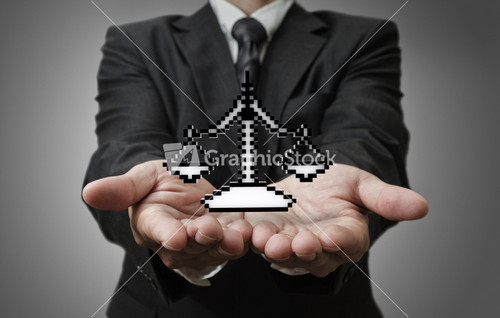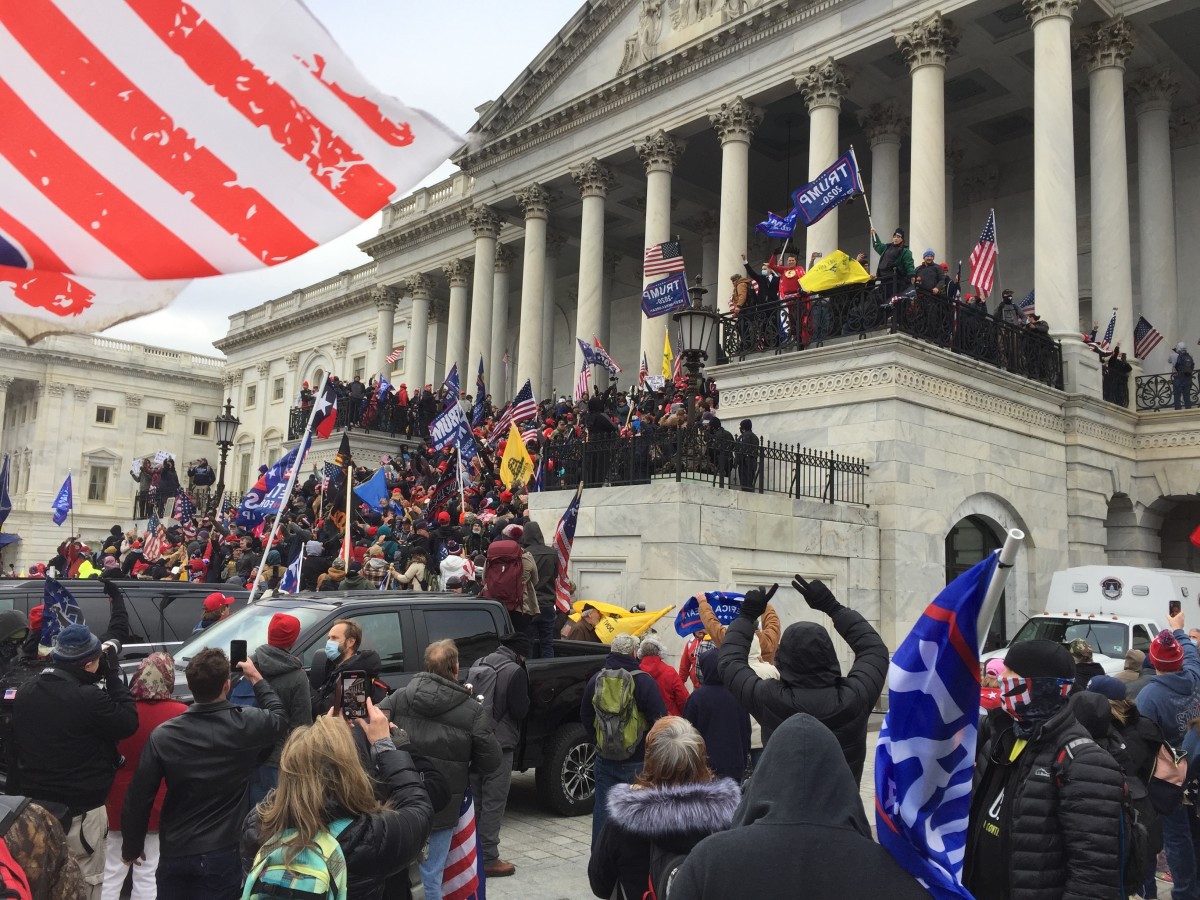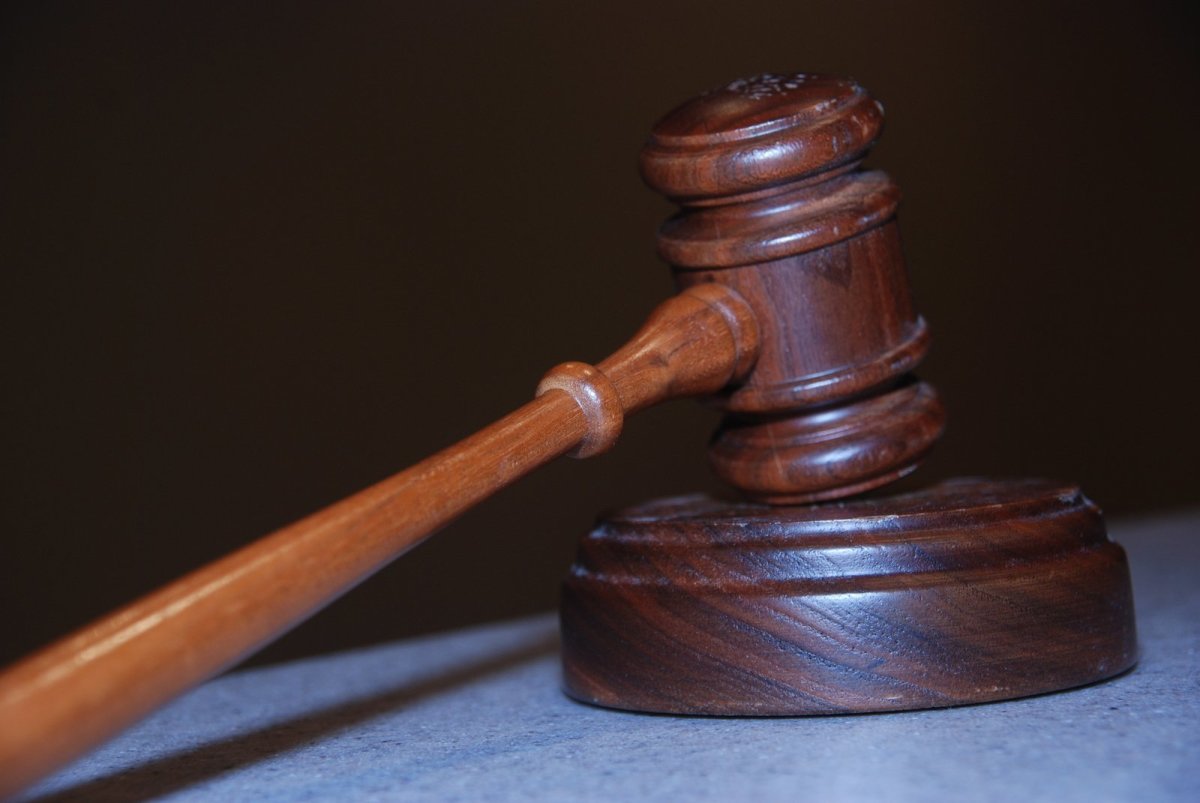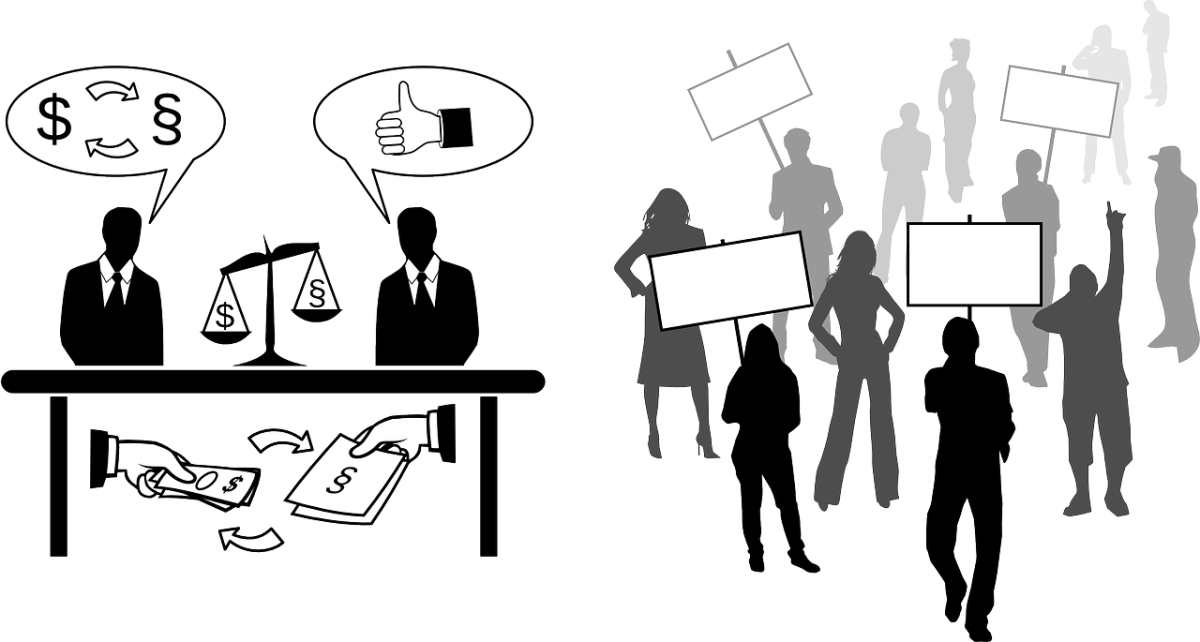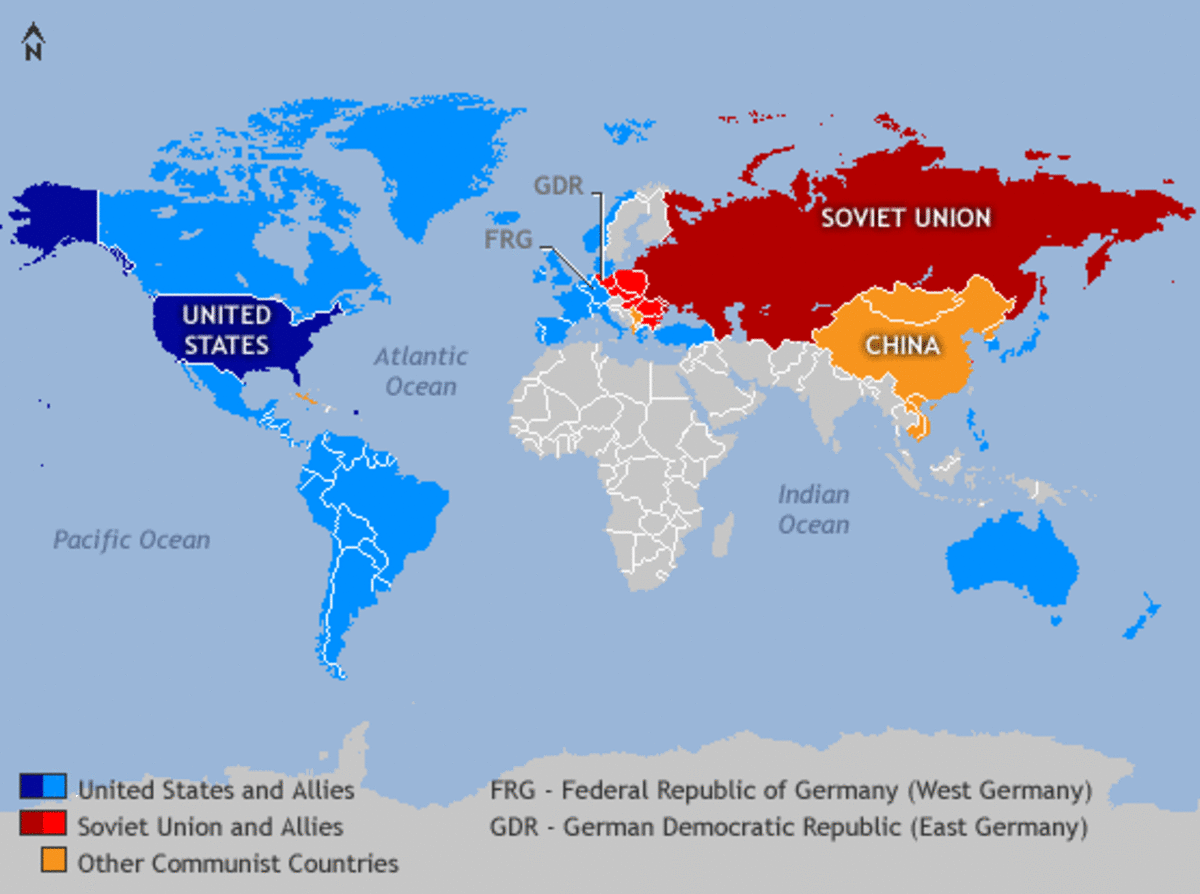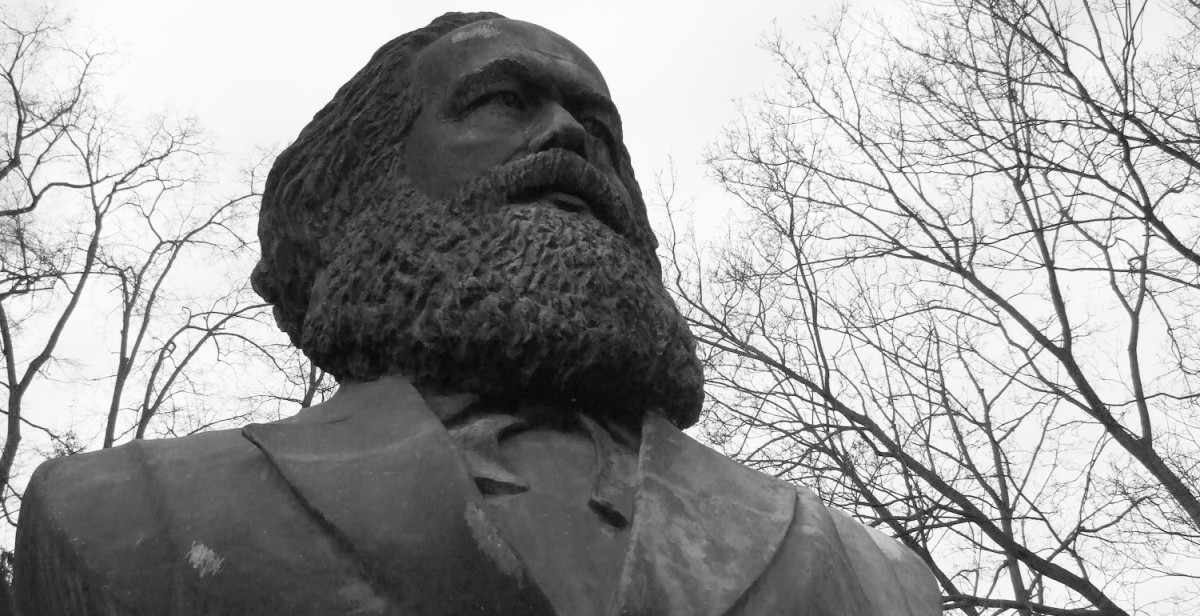Where is the Proper Place of the State?
Introduction
In light of the social issues we are experiencing today, I believe it is time for us to examine the place of the state in our lives, especially in how we live in the social sphere. Year after year, election after election, we see and hear news on people either praising the government for its good policies or curse it for their failures. Yet it is uncanny that many people do not even know and understand the true place of the state, even while they are rallying against the government for their rights and whatnot. This statement is a fact, not because the state has lost its place, but rather because the main players made the system weak in working for all its members. Humans have lost the essence of statehood, and it is high time to revisit the historical narratives in order that all citizens will be able to participate in a state wherein every member understands his place, and never hesitates to help his fellows in such a manner that no one will left alone while others are in the stage of progress.
I have three main points to discuss here:
- First, the search to examine the evolution of the State through historical narratives. I will first stress that I am in no way comparing them in their efficiency, as doing so using the context of my present generation is moot. All states have worked well, relative to the time and place where they arose. And even if there are failures in such systems, it is still consistent to the fact of the imperfection of humanity – since humans are always seeking improvement yet never fully achieving their fullest potential, or rather, the perfection of their existence.
- My second point will be to look into the relationship of the state and its citizens. I will especially analyze whether the relationship is complementary, symbiotic, or a hazard to each other.
- As a third point, I will talk about the importance of knowing and understanding where the State plays in human life, particularly in the social sphere. I will speak much about the virtue of citizenship, because this is a virtue all of us are born with and should be able to exercise every day to help the State and whole society improve.

Your Life as a Citizen
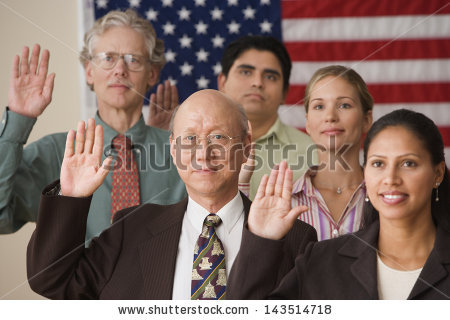
I. Evolution of the State
The state has evolved together with man as he went into the transition from primitive to modern civilizations. Difference of conditions under which they arose at different times and places gave rise to a variety of governmental organizations. It has developed from a rudimentary form to the modern complex structure. The state assumed different forms with a variety of governments, over to the relativism of time and place. But from what we can glean from the basics of history, the principal forms of the state are as follows:
- Tribal State;
- Oriental Empire;
- Greek City-State;
- Roman World Empire;
- Feudal State; and
- Nation-States.
In the primitive times, the state was indistinguishable from the tribe, since the rights of citizenship depended upon kinship. A person’s allegiance was towards his tribe, his family – neither territorial nor personal. This is because the concept of private ownership was still vague in those times when communal effort is done in hunting for food, or making the tools needed for the daily activities.
The concept of statehood first arose in the books of history when the people in the fertile valleys of the Ganges, the Nile, the Euphrates and the Tigris, Peru and Mexico where Nature was bountiful and primitive people could get food for themselves and fodder for their animals. The warm and fertile plains watered by great rivers were the seats of ancient civilizations and earlier states. Citizenship in these states equate to the absolute obligation to submit to the authority of the king and pay taxes to their government. As soon as the ruling dynasty became weak, they would replaced by another group of powerful rulers and the transfer of power from one dynasty to another initiated the beginning of the dynamics of culture and civilization. Despite their shortcomings, the early Oriental empires established the place of the State as an institution where people should obey to its authority.
Aztec Empire
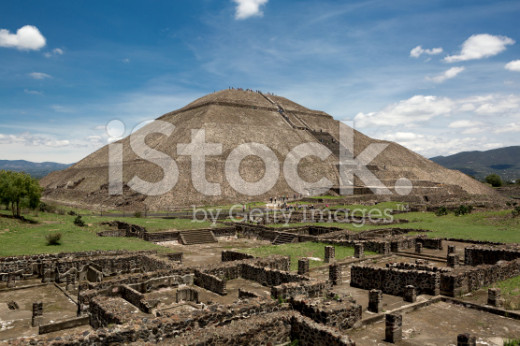
The Greek City-States
Greece was known in history as the Ancients’ laboratory for political experimentation, fitted well for political growth because of the strategic size of their city-states. Greek city-states were enough for a well-ordered civic life – large enough to be self-sufficient but small enough to enable the citizens to take an active part in the administration of the state. While Sparta was a strongly conservative state, Athens and all other city-states tried all sorts of government such as monarchy, aristocracy, and polity before finally settling into democracy.1 This freedom and flexibility of statehood produced great philosophers such as Socrates, Plato and Aristotle who spoke eloquently on the essence of citizenship, especially in the social and political sphere.
Athenians coined their political system from the ancient Greek words ‘demos’ meaning “people” and ‘kratos’ meaning ruler to introduce the idea of democracy. Its basic meaning is ''government by the people" or "rule by the ruled.'' Athenian democracy was very focused on source of constitutional power that rested in the hands of all the citizens which consisted of all male citizens over 18 years of age and who were willing to attend the sessions held about every 10 days. From the days of Solon, its first lawgiver, the Athenians like the rest of the Greeks had a deep respect for what they called the “golden mean,'' which meant that they avoided extremes in politics. There was a sober devotion to the common good.2 The common good that the Athenian citizens exhibit in politics are attributed to the fact that most of them who took active part in the Assembly were very well informed on public issues.
However, Athens and all other Greek city-states fell to Macedonia and Rome because they cannot be united under a common political authority, mainly because they had a strong sense of statehood, yet little to none concept of nationalism. The Greeks were intensely patriotic – proud of their statehood - that they treated all other people living in other city-states as their enemies and even barbarians, in the case of the non-Greeks.3
1 (The Process of Evolution of the State n.d.)
2 (How Democratic was Athens? n.d.)
3 (The Process of Evolution of the State n.d.)
Map of Ancient Greece
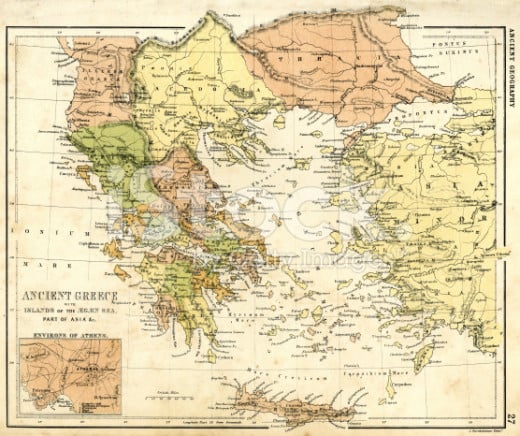
The Roman World Empire
In the early days of Rome, it was ruled by a monarchic government wherein there were two types of citizens – the Patricians, noble ruling class; and the Plebeians, the common people who hold no share of authority. But this system was replaced by the Republican form of government where the common people became the final authority in all matters. However, before democracy can reach its ultimate stage in the Roman political sphere, Rome became an empire, conquering her weaker neighbors, extending to the whole European continent.1
As an empire, it made a valuable contribution to political concepts especially the law. The Greek ideals of liberty, democracy and local independence were substituted by the Roman ideals of unity, order, universal law and cosmopolitanism, thereby making Rome as the first well-organized and well- governed state.2
The Roman Law and the Roman methods of colonial and municipal administration are used even in modern times. Her methods of welding people having diversity of race and language into a sort of political unity are her great achievements. The Roman empire fell in 500 A.D. because of internal decay and the invasions of the Teutonic barbarians. Rome sacrificed individual liberties for a centralized administrable authority and the omission of any form of local self-government caused Rome to decline.
1 (The Process of Evolution of the State n.d.)
2 (The Process of Evolution of the State n.d.)
Map of the Roman World Empire
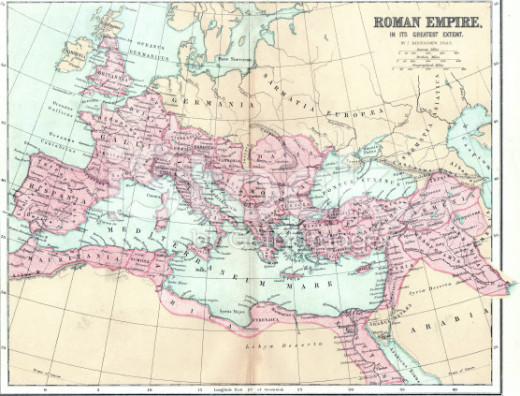
The Feudal State
After Rome fell to the Teutonics, Europeans entered the system of feudalism. Since the Teutonics were simply warrior tribesmen (consequently, meaning that they had no notions of unity, order and universal law), they had to implement feudalism as a compromise between the clan type society of the Teutonic's and the imperial states of the Romans.1
Feudalism states in the real sense of the term inasmuch as the authority of the state was distributed in a hierarchical manner on the basis of the ownership of land. They had no unity of the principles of common citizenship, common law and undivided loyalty to the central authority of the state. Most importantly, political power was monopolized by those who controlled economic power as well.2
1 (The Process of Evolution of the State n.d.)
2 (The Process of Evolution of the State n.d.)
Nation-States
Modern nation-states arose because of the Industrial Revolution when the commercial and industrial classes played a vital role in destroying the feudalism. The people felt oppressed by the absolute power of their Kings that they petitioned and rebelled for the provision of their rights and their freedom. That is what happened to England and France which were the first European countries to have a sense of being a nation-state as a constitutional monarchy and popular democracy, respectively.1
Centuries following that time, nations slowly asserted their need for self-determination that they broke off from big European states, especially the colonies rebelled for their independent against their colonists.
Uncannily we see various forms of democracy dominating the states in the world. This is mainly through the efforts of Western influences, particularly the United States of America. With democracy came the freedom of obtaining rights for one’s self yet also the risk of manipulating said rights for personal gain in the expense of others.
1 (The Process of Evolution of the State n.d.)
II. The State and Its People: Social Contract Theory
Since time immemorial, the State has tried to establish a firm relationship with its people, as I have discussed earlier in the historical narratives. But there will always be conflict of interests and power so the State has to find the most viable system that agrees with the need for the State to impose control over its dominion yet still following the will of the people it governs over.
The most viable principle for the relationship of the State to its citizens is the Social Contract Theory. This theory arose prominently in the era of Enlightenment or Renaissance in the 17th and 18th centuries. The Social Contract Theory challenged the traditional views of ownership of power as it introduced the ideal that morality and politics are closely linked to each other, in the sense that the rulers should rule fairly and the people should contribute significantly for the improvement of their societies. The government’s duty is to protect everyone’s rights and if the government violates the social contract, people may overthrow it. 1
The Social Contract Theory is mainly the focus of democratic systems, especially John Locke’s philosophy which are expressed in the American Declaration of Independence. He envisioned social contracts as essentially giving people rights that they naturally deserve, especially life, liberty, and property. According to John Locke, governments need to protect individuals' lives, ensure they are free to prosper, and enforce a system of laws that rewards efforts to improve society economically.2 The power of the State comes from the will (consent by election) of the people which legitimizes their rule in the land.
However, the vision of a well-ordered society under the fairness of the Social Contract Theory is not properly realized in the democratic states and other states which have founded their political systems on the basis of Locke’s philosophy because the liberal nature of such states weakens the State that it leads to injustice and chaos.3 Too much freedom yet not enough power of the State in checks and balances lead to the poor state of living conditions and morality in many countries such as those in Africa and Latin America. Weakness has been a problem of democracy, because of individualism which tends to pervert human rights into instruments for blocking the whole community system in order to defend oneself. But history and current events will also show that the State has too much power – it becomes violent like what is happening to Afghanistan and many Middle Eastern countries.4
The State needs to find a system of imposing its authority that strikes the balance between the State’s inherent power and the will of the people. It must be able to oppose the power of all particular groups – be they social, political or economical – in order to promote the common good.5 It must not be dictated by standards made by only a select few, but it must implement policies for the welfare of all citizens. The State’s power is given by right so that it can have the proper mindset of fairness and efficiency so that it will be serve the people well enough to acknowledge that the will of the people is the law of the land.
1 Locke, J. (1980). Second Treatise of Government. (C. Macpherson, Ed.) Indiana, Indianapolis: Hackett Publishing Company, Inc.
2 Barker, Sir E. (1960), Social Contract Essays by Locke, Hume, and Rousseau; OxfordUniversity Press; USA
3 (De Charentenay 1992)
4 (De Charentenay 1992)
5 (De Charentenay 1992)
Conclusion
The State is the medium of the people to access their rights while obeying the government out of their free will. Seeing the Social Contract Theory embodied in the form of public elections should be enough to judge the modern nation-states striving to maintain political and economic freedom for its citizens, such as the protection of private property and interest, the right to vote, freedom of speech and expression, equal opportunity, and equal rights. Yet unless the people who hold the will to give legitimate power to the State knows how exactly the State plays in their lives, the efforts to ensure equality and efficient governance will be all for naught.
History shows the progress of the State from a government absolutely powered by the nobles to a government legitimized by the will of its people through elections and free expression. People should be able to note that the ownership of power shifts from era to era, to accommodate the demands for equality in the provision of rights. This demand is the basis for the Will of the people, which democracy seeks to appease. Yet if people will not take an interest in the dealings of their State, particularly to really examine the State according to its place in the social sphere, the vision of a well-ordered and fair society will never be realized.
Yes, I am talking here about citizenship. It is high time for us to be more active citizens of the State so that we will be able to scrutinize the way the State works to protects our rights and all the more, to take a significant part in improving our situation. Citizenship is a priceless virtue we have been endowed with since birth or by voluntary application. Regardless of the way we acquired our citizenship, it is most important that we know and understand the conditions of the State. It is our will that legitimizes the power of the State, and as well, prompts us with the responsibility to be socially functional citizens that will not hesitate to help the State to improve. More than exercising our right to suffrage, we as citizens should be able to care for the State enough to help it improve the living conditions of everyone in the land. We ourselves should be able to live our lives, promoting the common good, which will in turn translate to us electing suitably efficient and upright leaders to the State.
You Have A Responsibility
